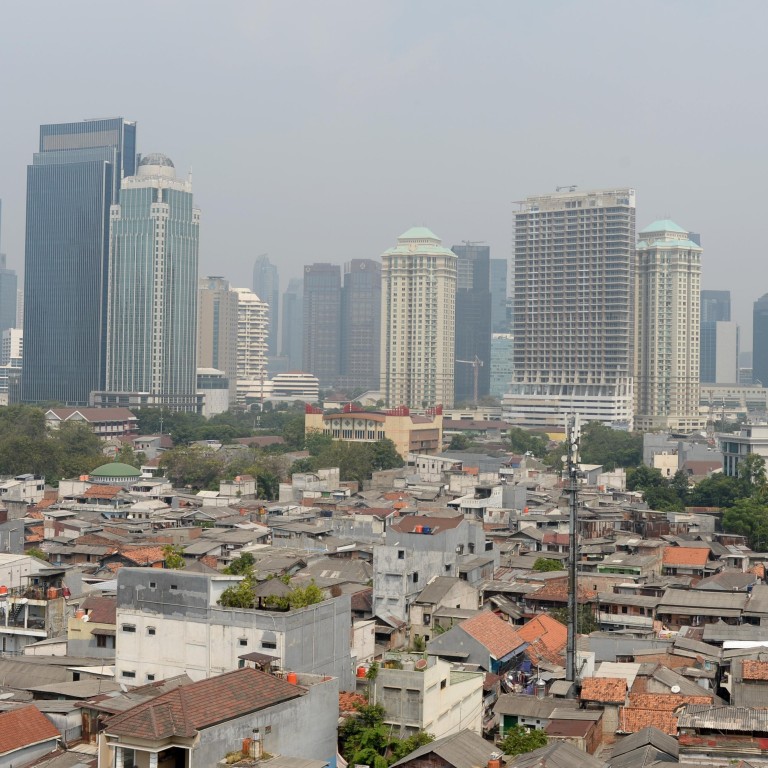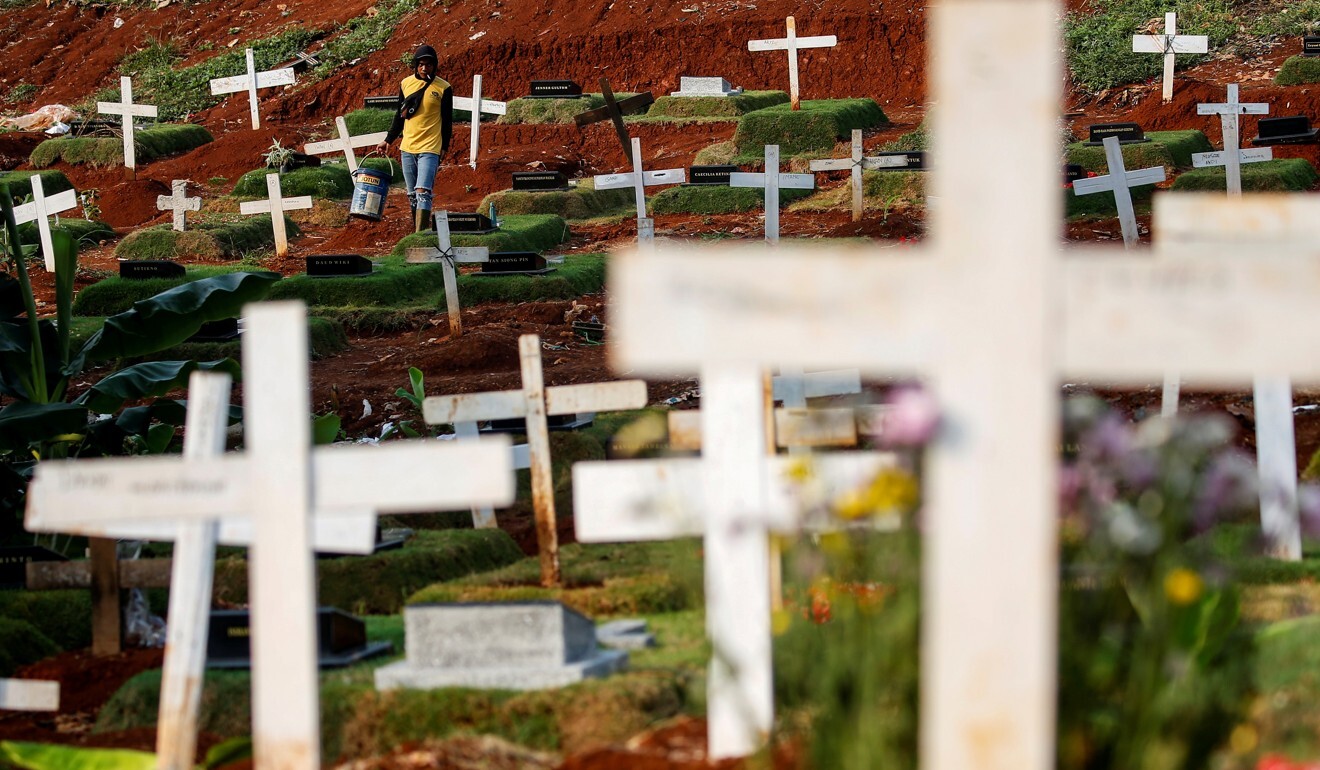
Indonesia pushes ahead with US$33 billion new capital city despite sputtering, pandemic-hit economy
- The plan has taken a back seat amid the government’s almost US$50 billion pandemic response, but is set to become a priority next year
- Investors from China, the Middle East and the US have shown interest in developing the new city, in East Kalimantan on the island of Borneo
As Jakarta sinks, the Indonesian government prepares to move
“Why should we continue with the new capital plan in the midst of a pandemic like this? The answer is that we need a locomotive that can deliver multiplier effects to the economy,” Monoarfa said in response to questions. “The capital project can create a lot of jobs and will have broad multiplier effects.”
Indonesia has identified about 256,000 hectares of land in East Kalimantan on the island of Borneo for the capital – about four times the size of Jakarta. An estimated 100 trillion rupiah (US$7 billion) a year in lost productivity due to traffic jams in the greater Jakarta area, home to almost 30 million people, and the need to spread economic growth beyond the main Java island have prompted the new capital plan.
‘New Balis’, Islam, and moving the capital: Indonesia’s Luhut Pandjaitan
The capital is proposed to be funded by a mix of government and private-public partnerships with bulk of the money coming from the private sector, according to Monoarfa. Abu Dhabi Crown Prince Mohammed Bin Zayed Al Nahyan, SoftBank Group founder and CEO Masayoshi Son and the US International Development Finance Corporation have shown interest in investing in the new city, according to officials.
“There are not many large-scale investment projects of this size in today’s world,” Monoarfa said. “So we hope that investors will come in large numbers and this is a great opportunity for them.”

The government’s investment will be limited to building the basic infrastructure for the capital and a state spending of 10 trillion rupiah is set to draw at least 100-120 trillion rupiah of private sector funds, he said.
While authorities previously targeted a groundbreaking ceremony for the project in the fourth quarter of this year, Monoarfa acknowledged a delay due to the pandemic but did not set a new date for start of construction.
The government plans to move the capital in phases from 2024, with the new city eventually becoming home to as many as 6-7 million people.

